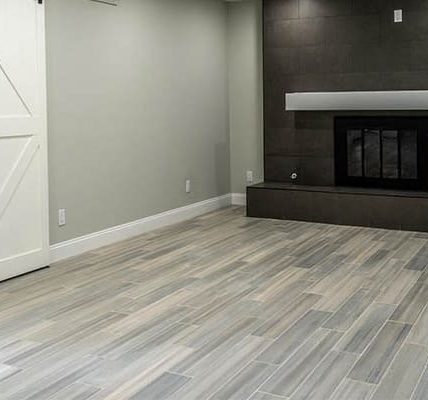In today’s fast-paced, hyper-connected world, the term “connection” has become synonymous with collecting business cards, adding LinkedIn connections, or exchanging superficial pleasantries at events. While these actions may expand your professional circle, they often lack depth and fail to foster genuine, lasting relationships. The quote, “Build relationships, not connections”, serves as a powerful reminder that true success—both personally and professionally—lies in cultivating meaningful connections rather than amassing a superficial network. This article explores why building relationships matters and how to shift from transactional interactions to authentic, value-driven connections.

The Difference Between Connections and Relationships
At first glance, connections and relationships might seem interchangeable, but they are fundamentally different. A connection is often transactional—a brief interaction or a shared contact that serves a specific purpose. Think of the business card you collect at a networking event or the LinkedIn request you send after a conference. These connections may open doors, but they rarely create lasting value unless nurtured into something more.
A relationship, on the other hand, is a deeper bond built on trust, mutual respect, and shared experiences. It requires time, effort, and genuine interest in the other person’s well-being. Relationships are not about what you can gain but about what you can give and grow together. While a connection might help you land a job, a relationship will support you through the challenges of that job—and beyond.
In a world obsessed with metrics like followers, likes, and network size, it’s easy to fall into the trap of collecting connections rather than cultivating relationships. But as the quote suggests, true success comes from depth, not breadth.
The Problem with Superficial Connections
In the digital age, it’s easier than ever to “connect” with people. A quick click on LinkedIn or a follow on social media can make it seem like you’ve expanded your network. However, these actions often lead to what sociologists call “weak ties”—connections that lack emotional depth, trust, or mutual understanding. While weak ties can occasionally be useful (e.g., for job referrals or information sharing), they rarely lead to meaningful collaboration, loyalty, or personal growth.
The problem with superficial connections is that they are transactional by nature. They are often driven by self-interest—what someone can do for you in the moment—rather than a genuine desire to understand, support, and grow with another person. Over time, this approach can leave you with a vast but hollow network, where people are more like acquaintances than allies.

The Power of Building Relationships
Building relationships requires a shift in mindset—from viewing people as means to an end to seeing them as partners in a shared journey. Whether in business, friendships, or family life, relationships grounded in authenticity and mutual care yield far greater rewards than fleeting connections.
Take the workplace as an example. A manager who invests time in understanding their team members’ strengths, challenges, and aspirations fosters a culture of trust and collaboration. Employees feel valued, not just as workers but as individuals, and this leads to higher engagement, productivity, and loyalty. Compare this to a manager who only “connects” with their team through formal emails or occasional check-ins. The lack of personal investment often results in disengagement and high turnover.
In personal life, the same principle applies. A friend who listens, celebrates your victories, and supports you through hardships is infinitely more valuable than a hundred acquaintances who merely like your social media posts. These deep relationships provide a safety net during life’s inevitable challenges and create memories that last a lifetime.
How to Build Relationships, Not Connections
Shifting from building connections to building relationships requires a change in mindset and approach. Here are some practical steps to help you cultivate meaningful relationships:
1. Focus on Quality Over Quantity
Instead of trying to meet as many people as possible, focus on deepening your interactions with a few individuals. Take the time to learn about their goals, values, and challenges. Show genuine interest in their lives and experiences. By investing in fewer but more meaningful relationships, you’ll create a network that is both supportive and impactful.
2. Be Authentic
Authenticity is the foundation of any strong relationship. Be yourself, and don’t be afraid to show vulnerability. People are drawn to those who are genuine and transparent. Share your own experiences, struggles, and aspirations. When you open up, others are more likely to do the same, creating a deeper bond.

3. Listen More Than You Speak
One of the most powerful ways to build relationships is to be a good listener. Pay attention to what others are saying, ask thoughtful questions, and show empathy. Listening demonstrates that you value the other person’s perspective and are genuinely interested in their well-being.
4. Give Without Expecting Anything in Return
Relationships thrive on generosity. Offer your time, expertise, or support without expecting immediate reciprocation. Whether it’s sharing a helpful resource, making an introduction, or simply being there for someone during a tough time, small acts of kindness can go a long way in building trust and goodwill.
5. Follow Up and Stay in Touch
Building relationships is not a one-time event; it’s an ongoing process. Follow up with people after your initial interaction, whether it’s through a quick email, a phone call, or a coffee meeting. Stay in touch regularly, even if it’s just to check in or share an article you think they’d find interesting. Consistency is key to maintaining strong relationships.
6. Be Patient
Relationships take time to develop. Don’t rush the process or force a connection. Allow the relationship to grow organically, and be patient as trust and rapport are built. Remember, the goal is to create a lasting bond, not a quick transaction.
The Long-Term Benefits of Building Relationships
The benefits of building relationships over connections are profound and far-reaching. In business, strong relationships lead to loyal clients, committed partners, and a supportive network that can weather economic storms. In personal life, they provide a sense of belonging and purpose that no number of followers can replicate.
Consider the story of a small business owner who prioritized relationships with her customers over aggressive marketing campaigns. By remembering their names, listening to their needs, and offering personalized solutions, she turned one-time buyers into lifelong advocates. Her business thrived not because of flashy ads but because of the trust and loyalty she cultivated.
Ultimately, the quote “Build relationships, not connections” serves as a powerful reminder to slow down and invest in what truly matters. Life isn’t about how many people you know—it’s about how deeply you know them and how much you impact each other’s lives. In a world that often values speed and scale, choosing depth over breadth is a radical act of wisdom. By focusing on relationships, we create a ripple effect of trust, support, and growth that enriches both ourselves and those around us.




